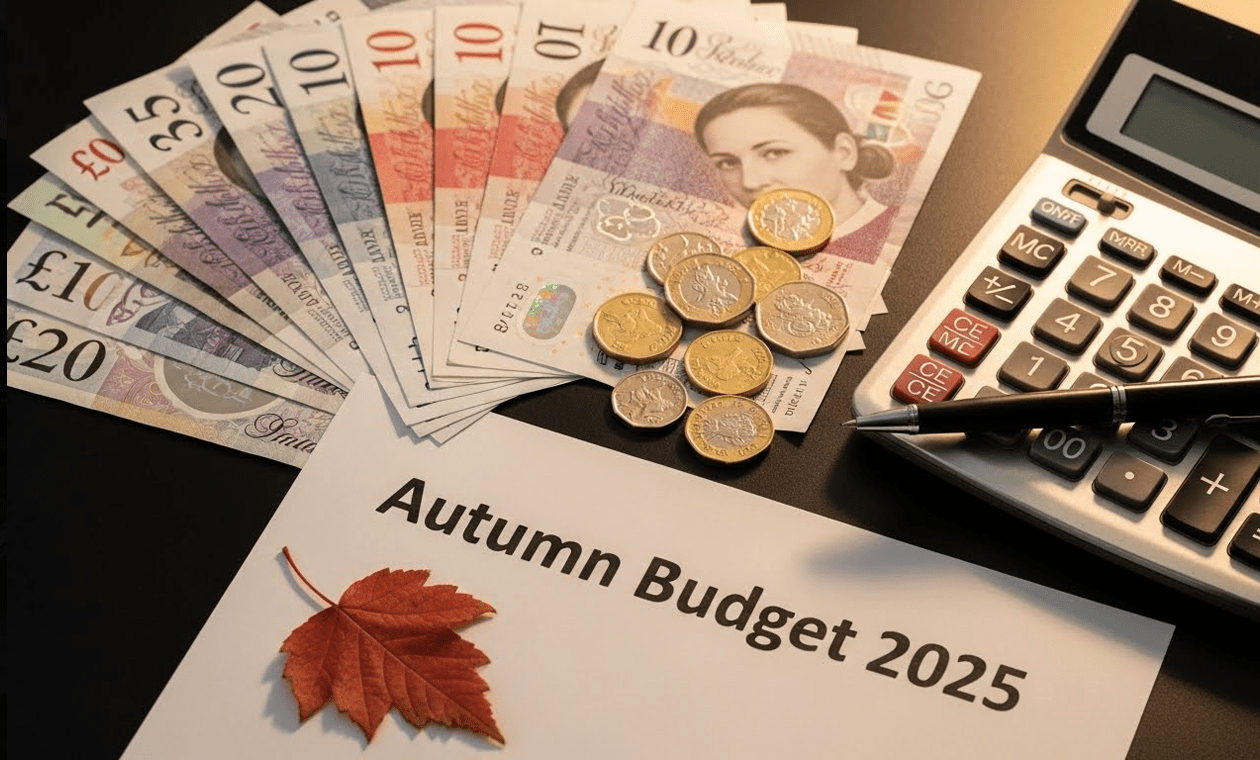Contents
As a landlord, you must know that rental income is subject to income tax. However, you might be paying more tax than necessary, probably due to a lack of awareness about available deductions. Smart real estate investments minimise your tax liability by allowing you to claim all eligible expenses. This article will guide you through essential tips and strategies on how to reduce tax on rental income. By the end, you will have a better understanding of how to effectively manage your rental property finances to reduce your taxes.
Recent Tax Changes Affecting Landlords [2024/25]
Prior to April 6, 2017, mortgage interest payments were fully deductible from rental income when calculating taxable profits. However, legislation introduced in phases from April 6, 2017, to April 6, 2020, has transitioned this to a system where you will receive a tax credit for mortgage interest costs. This credit is calculated by applying the basic rate of income tax (currently 20% for the tax year 2024-2025) to the interest you paid.
This transition was fully implemented from the tax year starting April 6, 2020. It has particularly affected higher-rate taxpayers, as the tax relief obtained on mortgage interest is now limited to the basic rate.
Find out how much tax is on your rental income by reading our guide.
![Recent Tax Changes Affecting Landlords [2024/25]](https://legendfinancial.co.uk/wp-content/uploads/2025/09/LF-Blog-30-CR250303LF-1.webp)
How to Avoid Paying Tax on Rental Income
One of the most effective ways to reduce the tax you pay on rental income is by carefully claiming all allowable deductions. Deductions are legitimate costs associated with running your rental property business. By subtracting these expenses from your gross rental income, you will calculate your taxable profit.
Common Deductible Expenses Categories
Here are the most common deductible expenses for rental properties:
- Property Maintenance and Repairs
- Property Management and Letting Agent Costs
- Finance Costs (Subject to Restrictions)
- Insurance
- Administrative and Legal Costs
- Allowances
How to Save Tax on Rental Income
Building on the broad categories we just covered, let us now delve into some specific examples of expenses you can claim to reduce your taxable rental income. These details can make a real difference to your overall tax bill.
Repair and Maintenance Costs
You can claim deductions for routine repairs and maintenance that keep your property in good condition. This includes fixing leaks, replacing worn-out parts, or repairing appliances. Keep in mind that maintenance that improves the property (like major renovations) is usually not deductible but may be treated as capital expenditure.
Property Management Fees and Letting Agent Costs
If you hire a letting agent to manage your property or find tenants, the fees they charge are deductible. This includes management fees, tenant-finding fees, and any other charges related to the management of your property.
Insurance Premiums
You can deduct the cost of insurance premiums for your rental property. This includes building insurance, contents insurance (if you provide furnishings), and public liability insurance. These policies protect your property and are an essential cost of doing business as a landlord.
Utility Bills (if included in the rent)
If you, as the landlord, cover utility bills (electricity, gas, water) for your tenants, these costs are deductible. Keep records of the payments made on behalf of your tenants, as these can offset your rental income.
Council Tax (if the landlord is responsible)
If you are responsible for paying the council tax on your rental property, rather than the tenant, you can claim the cost as a deduction. This is only applicable if the lease agreement or local regulations require the landlord to pay.
Legal and Accountancy Fees
Expenses for professional services related to managing your property, such as legal fees for drawing up tenancy agreements or resolving disputes, and accountancy fees for tax preparation, are deductible. These fees are a necessary part of maintaining a rental business.
Advertising and Tenant Finding Costs
The costs associated with advertising your rental property and finding tenants are also deductible. This includes online listings, printed ads, or costs related to advertising through a letting agent.
Specific Reliefs and Allowances
In addition to direct expenses, landlords can also benefit from specific tax reliefs and allowances. These can further reduce taxable rental income. Here are three key ones to consider:
Claim Replacement of Domestic Items Relief
If you replace items like furniture, appliances, or kitchenware in a fully or partly furnished rental property, you may be able to claim the Replacement of Domestic Items Relief. This applies to things like sofas, beds, curtains, white goods, and carpets.
The relief only applies to like-for-like replacements, not improvements. For example, replacing a standard fridge with a similar model qualifies, but upgrading to a high-end smart fridge does not. You can also claim associated costs like delivery or installation.
Claiming “Home Office” Allowable Expenses
If you manage your rental business from home i.e. handling paperwork, managing bookings, or communicating with tenants, you may be able to claim a portion of your household expenses as a home office deduction.
You can either use:
- Simplified expenses (a flat rate based on hours worked at home), or
- Actual expenses, where you apportion part of your home’s costs like electricity, broadband, and council tax based on usage.
This relief is especially useful for landlords managing multiple properties or dealing with regular admin tasks.
Maximising Property Income Allowance
If your total property income (before expenses) is £1,000 or less in a tax year, you can take advantage of the Property Income Allowance, which exempts you from needing to declare or pay tax on that income.
If your income exceeds £1,000, you can still claim this allowance instead of actual expenses. This will be beneficial if your expenses are low. However, you cannot claim both the allowance and expenses. You must choose whichever gives you the bigger tax saving.
Learn about other allowances and tax relief in our guide for 2024/25 tax season.
Apportionment of Expenses
Apportionment simply means dividing the cost of something between its business use (your rental activity) and its personal use. You can only claim the portion of the expense that relates directly to your rental business. HMRC expects any apportionment to be fair and reasonable (based on the specific circumstances).
When Might You Need to Apportion Expenses?
Here are a couple of common scenarios where you, as a landlord, might need to apportion expenses:
- Letting out part of your own home: If you rent out a room in your main residence, you will need to apportion household expenses like utility bills, council tax, and potentially even mortgage interest (though the rules around mortgage interest relief are specific, as we discussed earlier).
- Using a property as a holiday let and for personal use: If you have a property that you rent out as a holiday let for part of the year and use for your own holidays at other times, you will need to apportion expenses based on the periods of rental and personal use.
How Does Apportionment Work?
The key to apportionment is to find a fair and logical basis for dividing the expense. Here are some common methods you might use:
- By floor area: If you rent out a specific room or floor of your house, you could apportion expenses based on the percentage of the total floor area that is used by your tenant. For example, if your tenant occupies 20% of the total floor space, you might be able to claim 20% of certain household bills.
- By time: If you use a property personally for three months of the year and rent it out for the remaining nine months, you might apportion annual expenses based on this time split (e.g., claiming 75% of the costs).
- A combination of area and time: In some cases, you might need to consider both the area used and the time it isused for rental purposes.
Examples of Apportioned Expenses
- Mortgage Interest If you rent out part of your own home, you will likely need to apportion the mortgage interest based on the portion of the property that is let.
- Utility Bills (Electricity, Gas, Water) If your tenant contributes to these bills or if you are claiming for a period when the property was let, you will need to determine the portion relating to the rental activity.
- Council Tax If you rent out part of your home, you might be able to apportion the council tax.
- Insurance You may need to apportion your building or contents insurance if only part of the property is let.
- Broadband/InternetIf your tenant has access to your internet, you might be able to claim a portion of the cost.
Strategic Tax Planning for Landlords
Claiming allowable expenses is just the beginning. Long-term tax efficiency requires strategic planning. Below are the key methods landlords can use to manage and minimise their overall tax liability.
A. Use Tax Bands Smartly
Rental income is added to your other income (such as wages, pensions, or dividends) to determine your overall taxable income. Once you pass into a higher tax band, a greater portion of your income is taxed at a higher rate. In the UK (as of 2025), these are:
- Personal Allowance: £12,570 (0%)
- Basic Rate: £12,571–£50,270 (20%)
- Higher Rate: £50,271–£125,140 (40%)
- Additional Rate: Above £125,140 (45%)
Your total income, including rental income, employment, pensions, or dividends, affects your position within these bands.
Strategies to optimise:
- Time income and expenses: If possible, delay receiving income or accelerate expenses to keep income within a lower band.
- Split income: Joint ownership with a spouse or civil partner allows you to allocate rental income to the lower-earning partner.
- Use personal allowances: Both you and your partner can make use of your full tax-free allowance.
B. Joint Ownership for Tax Efficiency
Owning property jointly with a spouse or civil partner can help reduce your combined tax bill. By default, rental income is split 50/50. For unequal ownership, you can complete Form 17 and provide evidence of unequal beneficial interest (e.g., 80/20). This is especially useful if one partner is in a lower tax band or has unused personal allowance.
Key benefit: More of the income is taxed at a lower rate, reducing overall liability.
C. Holding Property in a Limited Company
Forming a limited company for your rental business can be a powerful strategy, especially for landlords with multiple properties.
Advantages:
- Corporation Tax applies (19% or 25%, depending on profits), which may be lower than personal tax rates.
- You can retain profits in the company for reinvestment.
- Greater flexibility in profit extraction (e.g., salary, dividends, pension contributions).
Disadvantages:
- Dividend tax applies when withdrawing profits (8.75%–39.35% depending on your band).
- Additional admin: You will need to file annual accounts and a Corporation Tax return.
- Financing complications: Mortgage rates for companies may be higher and more limited.
Tip: Best suited for landlords with long-term growth plans and higher-income brackets.
D. Mortgage Interest Relief (Post-2020 Rules)
Mortgage interest relief is no longer fully deductible. Instead, landlords receive a 20% basic rate tax credit on interest payments.
Example:
If you pay £10,000 in mortgage interest, you get a £2,000 tax credit (20% of £10,000), regardless of your income tax rate.
Planning tips:
- Include mortgage interest in your financial forecasts, especially for high-rate taxpayers.
- Consider overpayments to reduce long-term interest if you have excess capital.
- Compare opportunities (overpaying vs investing elsewhere).
E. Offset Buy-to-Let Mortgages
Offset mortgages link a savings account to your mortgage. You only pay interest on the balance minus the savings.
Example:
Mortgage= £150,000
Savings= £30,000
Interest charged only on: £120,000
Benefits:
- Reduces interest payments, increasing net income.
- No tax on savings interest, since it isoffset, not earned.
- Greater control over liquidity as savings remain accessible.
Note: These mortgages may have higher rates or limited lender availability.
F. Capital Allowances & Property Improvements
When investing in major improvements or extensions, certain costs may qualify for capital allowances.
Eligible items (for furnished holiday lets or qualifying businesses):
- Electrical systems, plumbing, heating
- Built-in kitchens, bathroom suites
- Integral fixtures and fittings (e.g., carpets, blinds)
Managing Income and Losses
In the end, it all comes down to how well you manage your rental income and allowable expenses throughout the year. Whilst maximising deductions is a key part of the equation, timing and understanding how certain rules work can help avoid paying more tax than necessary.
A. Short-Term vs. Long-Term Tenants
The type of tenancy you offer—short-term or long-term—can affect your tax obligations, especially if your property qualifies as a Furnished Holiday Let (FHL).

Short-term lets, if they meet certain criteria (e.g., available to let for at least 210 days and actually let for at least 105 days per year), may qualify as FHLs. These are treated differently from standard rental properties and offer unique tax advantages:
- Capital Allowances: You can claim allowances on furniture, equipment, and fixtures in FHLs, unlike standard rental properties.
- Pension Contributions: Profits from FHLs count as relevant earnings, enabling landlords to contribute more toward pensions.
- Business Asset Disposal Relief: Selling an FHL may allow you to qualify for Business Asset Disposal Relief (formerly Entrepreneurs’ Relief), reducing capital gains tax.
In contrast, long-term rentals are more straightforward and consistent but offer fewer tax benefits. However, long-term tenancies may bring stability in income and lower management costs.
B. Planning Your Income and Expenses
How and when you receive income, or incur expenses, can affect your taxable profit for the year. Timing is everything when it comes to managing cash flow and minimising tax liabilities.
For instance, if you are expecting a spike in rental income due to a rent increase or additional property acquisition, it might be wise to bring forward planned expenses such as repairs, maintenance, or allowable upgrades into the same tax year to offset the higher income. This way, you can reduce the taxable profit in the high-income year and avoid slipping into a higher tax bracket.
Similarly, if you foresee a leaner year ahead (perhaps due to a vacant period or reduced rent), consider delaying non-urgent expenses to coincide with that period so you can still benefit from tax relief when income is lower.
C. Carrying Forward Losses
If your rental business makes a loss, you are not out of luck. The UK tax system allows landlords to carry forward losses to offset against future profits from the same rental business.
Here’s how it works:
- Losses must be reported in the tax return for the year they occur.
- The carried-forward loss can only be used to offset future rental profits from the same rental activity, not against other income (like employment or self-employment).
Strategically managing losses can help smooth out your tax liability over time. Particularly if you are investing heavily in a property in the early years and not yet generating a profit. However, make sure your losses are correctly documented and tracked year to year.
Private Residence Relief
Private Residence Relief (PRR) is a Capital Gains Tax (CGT) relief that applies when selling a property. Private Residence Relief is key to avoid capital gains tax on rental property if it was once your main home.
If you lived in the property as your main home for any period, PRR exempts the capital gains accrued during that time. Additionally, the final 9 months of ownership are also exempt, even if the property was let during that time.
Considering selling your rental property in the future? Our guide on How to Avoid Capital Gains Tax on property offers valuable insights!
Rental Periods and Letting Relief
If you let the property after moving out, only the portion of the gain related to the rental period is taxable. Letting Relief may reduce this further, but since April 2020, it is only available if you lived in the property at the same time as your tenants.
FAQs About How to Reduce Tax on Rental Income
Do I need to register with HMRC if I’m only earning a small amount from rental income?
Yes, if your rental income exceeds £1,000 per year, you must register with HMRC and file a Self Assessment tax return. Even if your profit is low, failing to report it can lead to penalties. However, the Property Income Allowance may cover small earnings under that threshold.
Can I reduce my rental tax by investing in energy-efficient improvements?
Whilst most green upgrades do not directly offer tax relief, they can qualify as capital improvements that increase property value. If you later sell, these costs may reduce your Capital Gains Tax (CGT) bill. Some grants and incentives also reduce out-of-pocket expenses upfront.
How can I structure rental income with my spouse to reduce overall tax?
Married couples or civil partners can split ownership of a property and its rental income. This allows income to be allocated to the partner in the lower tax band, potentially reducing total tax liability. You will need a Form 17 declaration if you arenot splitting 50/50.
Will setting up a pension scheme help offset rental profits?
Yes. Contributing to a pension can lower your total taxable income, which may bring your rental profits into a lower tax bracket or reduce the impact of mortgage interest relief limits. This is especially effective if you are close to the higher-rate tax threshold.
Can I claim tax relief if my property is vacant between tenants?
You cannot claim rental loss for periods when the property is empty. Unless you are still incurring allowable expenses like council tax, insurance, or repairs. These can still be deducted, even without rental income, but would not trigger a tax refund, just a loss to carry forward.
Get Proactive Tax Planning for Rental Success
Many landlords unknowingly pay more tax than they need to, simply due to a lack of clarity on how to reduce tax on rental income.
At Legend Financial, we specialise in providing clear and effective tax advice to minimise your liabilities. Our experienced team is here to help you identify every eligible deduction and relief you areentitled to and develop a proactive tax plan. Stop leaving money on the table.



![Tips on How to Reduce Tax on Rental Income [2025 Latest]](https://legendfinancial.co.uk/wp-content/uploads/2025/09/LF-Blog-30-CR250303LF-ft-1-1024x618.webp)






6 responses
Hi,
I am a UK resident and also a Seafarer. As a result I don’t pay income tax. I would like to purchase a 2nd buy to let property. Will any rental income be tax free up to the £12,750 threshold?
I am not sure If I’m better off setting up a limited company?
Thanks
Gordon
Hi Gordon, thank you for your comments here.
The advice you are looking for appears to be of a specialist area due to you being a Seafarer, however the Rental income will be subject to taxes and the allowance of £12,750 will be available to offset against other income. You can setup a company but it would be best to understand your needs and future planning, before we can advice on it.
If you think this is something to be discussed, please email us on hello@legendfinancial.co.uk and we can then have one of our advisor to be in touch with you.
Many thanks,
Fahad
Hi,
Thanks for the useful information. I’ve just got confused with the below part of the article. As far as I know, as a landlord, we are no longer claim the mortgage interest.
Could you please clarify this bit?
There is still a way by which, one can take away mortgage interest. Let’s say, an owner bought a rental property for which the yearly interest is £10,000, and the income for the same year from that property is £40,000. So, when filling out the tax return one can deduct this £10,000 interest from annual rental income, which makes total income equal to £30,000. Lenders should handover the documents containing the interest paid for each year.
Hello Ilter,
Thank you for your comments. You are quiet right that the mortgage interest no longer can be claimed as an expenses, but infact given a tax relief at the basic rate or the higher depending on your income.
In your question, the expenses of £10,000 can not be claimed as an expenses, rather than as a relief against the tax payable at 20%, so a relief of £2,000 against the taxes due – however there may be some restriction depending on other factors on in the tax return.
We can assist with this if you require help. If you can kindly drop us an email on hello@legendfinancial.co.uk with your contact details – one of our Tax Advisors will then book a call with yourself, as needed.
Many thanks,
Fahad
Hello. My partner has decided to rent out his main home on air bnb. He can move in with me but retain it as his residence. We already own a fhb which is running at a loss. He is a higher tax payer and I am a lower. What is the most effective way to deal with income from his air bnb?
Dear Jane,
Thank you for your comments.
From this we see that your partner’s residence is being looked at to be utilised as a flexible air bnb let under his sole name. Due to his income, there is a potential 40% tax on profits but if we can arrange a call we can look to see if the split can be arranged on the property in various ways to minimise this liability.
With respect to the fhb, is it jointly owned – The losses here can only be utilised against future profits, but we could discuss further possibilities too.
I suggest that if you wish to have this discussed in detail, please drop us an email on hello@legendfinancial.co.uk with your contact information and availability, and one of our advisors will be in touch with you soon.
Many thanks
Fahad